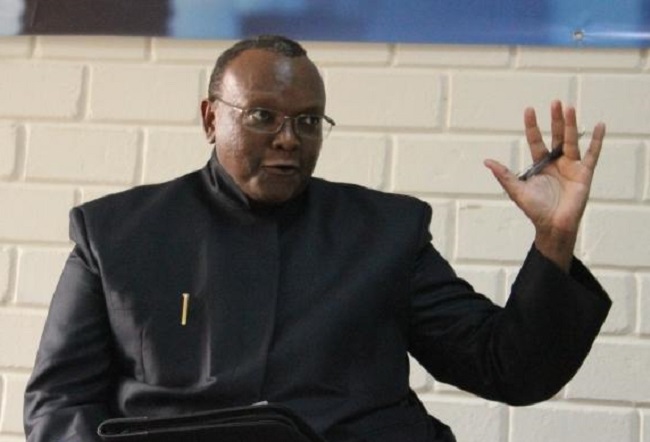Only a just society can heal apartheid’s wounds

Professor Murithi says unfortunately South Africa continues to embrace a system that creates a few rich but many poor
Photo: ipss-addis.org
Only a new economic system leading to fewer injustices and divisions among people can heal South African society. This is the view of the Sweden-based Nordic Africa Institute (NAI) guest professor Tim Murithi, who is otherwise based at the Institute for Justice and Reconciliation in Cape Town, South Africa.
After the ending of apartheid, the Truth and Reconciliation Commission (TRC) was established to deal with the past and pave a way forward for South Africa.
In the TRC process, victims of the apartheid regime’s brutal methods gave their testimonies, often in public hearings. Perpetrators were also able to testify and could request amnesty for their crimes.
“It is a common misconception that if they confessed to their crimes before the commission, they were forgiven and absolved, no matter what the person had done. That is not true, but that image of the commission has taken hold,” Murithi notes.
The commission’s greatest achievement, Murithi says, was collecting and compiling all the confessions and testimonies of the victims and perpetrators who came before it. These documents now constitute a key historical record of the apartheid era, which future generations in South Africa can never disregard and dismiss.
The TRC was dissolved in 2000, but the Institute for Justice and Reconciliation (IJR) has continued much of its work. Part of its mandate is producing policy analyses for politicians to consider in decision-making. IJR also works on the ground to promote community healing, which means that people sit down and talk about their experiences of apartheid.
“There have been 22 years of peace, yet people are still not healed of apartheid’s effects. It is only human to prefer to sweep difficult issues under the carpet, but challenges will never be resolved by doing that. We must talk openly about the past,” Murithi argues.
However, talking is not the solution to everything. Since achieving its freedom, South Africa has witnessed rapidly widening social gaps and many people don’t feel included in the society. IJR is thus also engaged with issues of socioeconomic justice.
“The unregulated market economy has created huge inequalities. Remarkably, the ANC has never questioned this. On the contrary, it continues to embrace a system that creates a few very rich but many poor. If one adds widespread corruption to the equation, it is not difficult to understand why people are unhappy with the ruling class,” Murithi adds.
In particular, the youth are the most disenchanted in today’s South Africa. Elders tell them how lucky they are to have been born into freedom and not to have to fight a racist system. Murithi understands the youth’s frustration: how can they feel free when they live in absolute poverty and when their parents cannot afford to pay their school fees?
“Discontent and frustration were the main reasons for the student protests this year. They began with the issue of removing the statue of Cecil Rhodes, but quickly escalated into issues of social class ‒ but also of race. Sadly, South Africa’s history is still not a thing of the past. I have heard many young people saying that the Rainbow Nation is only a myth, and there are even those who accuse Nelson Mandela of being a sell-out,” Murithi notes.
Nordic Africa Institute

